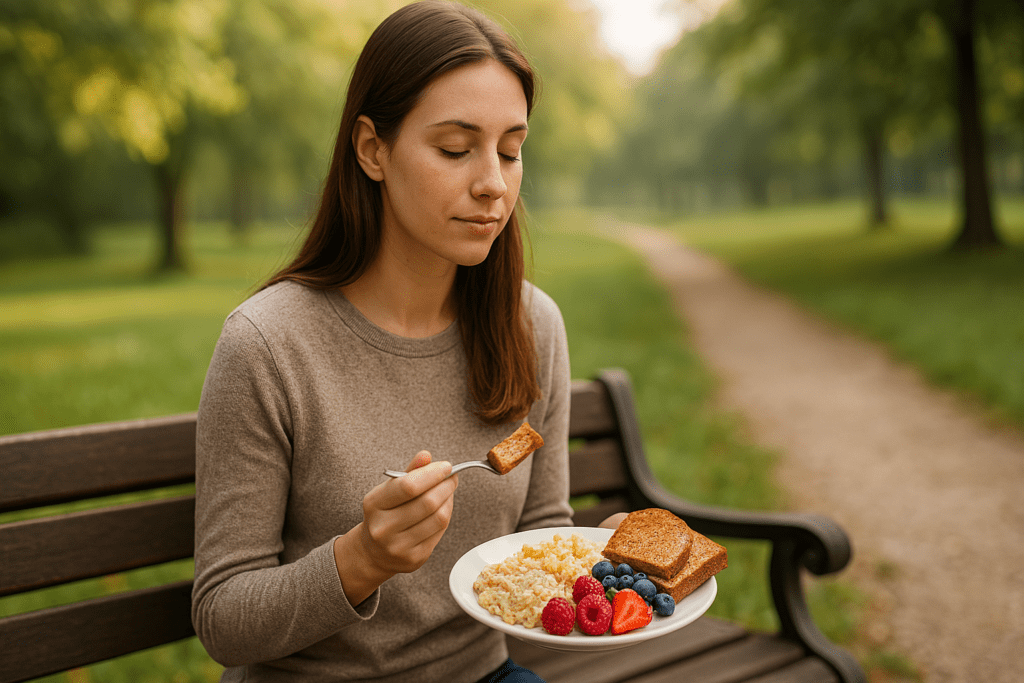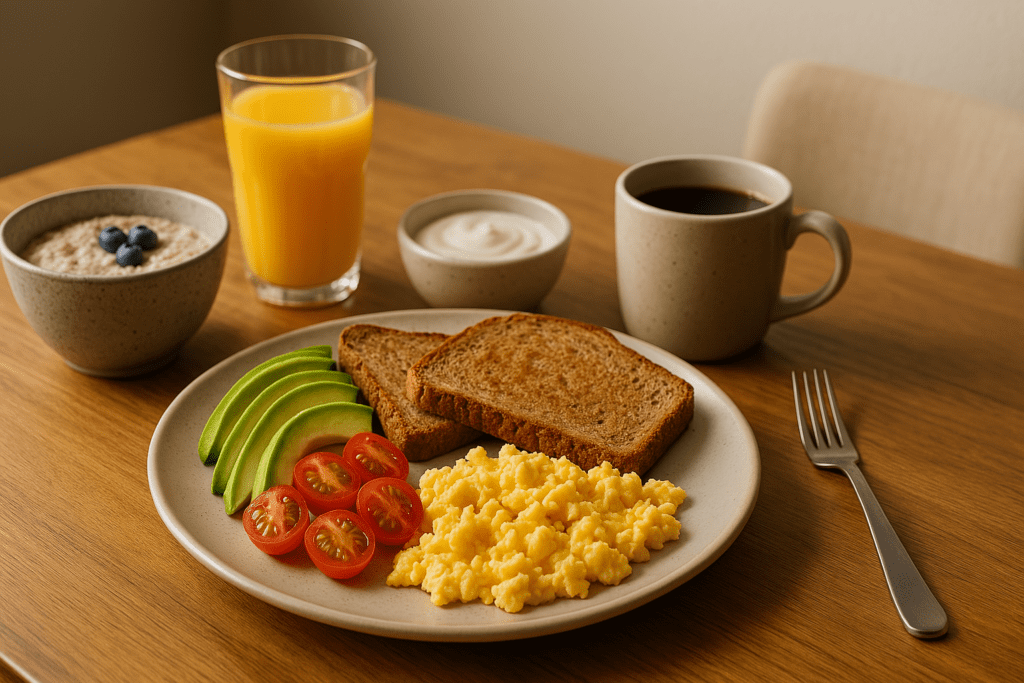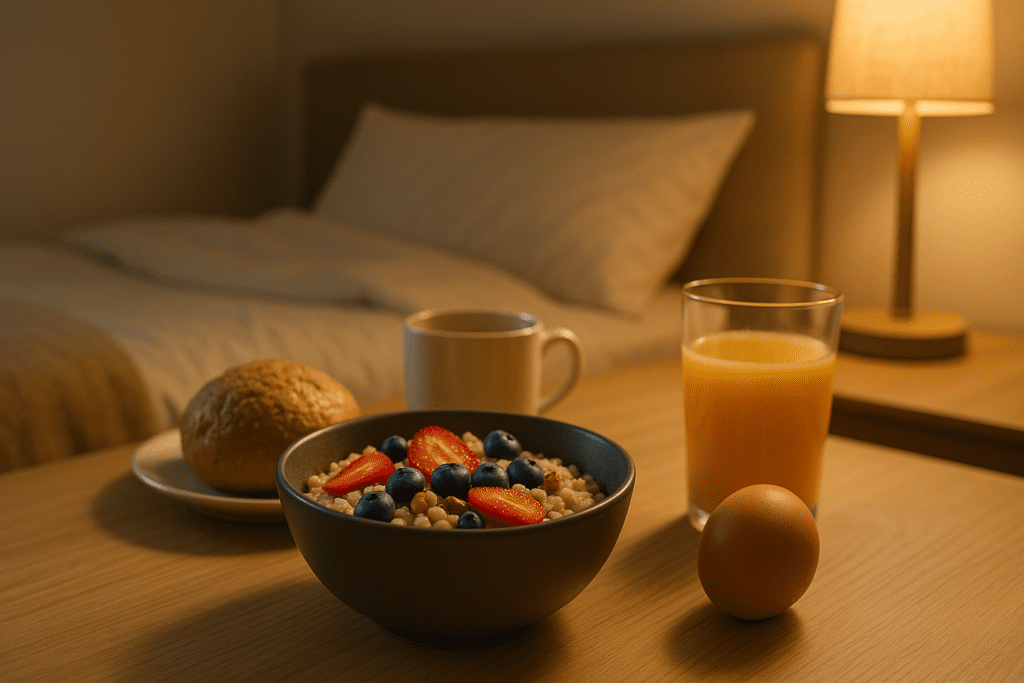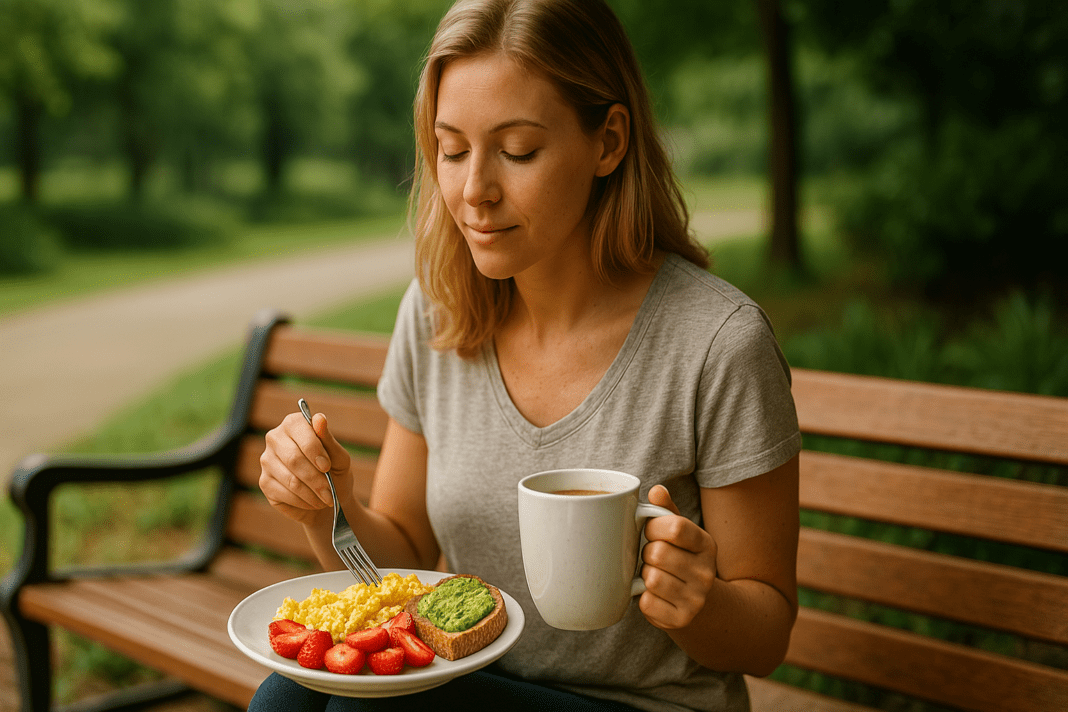Why Breakfast Matters: The Science Behind a Powerful Morning Meal
Breakfast is far more than a cultural habit or morning ritual—it is a biological necessity with profound implications for metabolic health, cognitive function, and emotional well-being. After a prolonged overnight fast, the body requires replenishment to stabilize blood sugar, fuel the brain, and kickstart the digestive system. Skipping this foundational meal has been associated with adverse effects, including impaired concentration, irritability, and overconsumption of calories later in the day. For individuals seeking to optimize their energy and focus, breakfast is not just a good idea—it’s a cornerstone of a healthy lifestyle.
Scientifically, eating in the morning can reset circadian rhythms, regulate cortisol levels, and enhance insulin sensitivity. Studies have shown that individuals who consume balanced breakfast foods tend to perform better on memory and attention tasks. Additionally, consistent breakfast eaters are more likely to maintain healthy body weights, partly due to the regulation of hunger hormones like ghrelin and leptin. Given these findings, it’s clear that what to eat for breakfast is a question worth exploring with care and intention.
Choosing the best breakfast foods requires more than grabbing a granola bar on the go. The ideal breakfast meal ideas combine complex carbohydrates, lean protein, healthy fats, and fiber to support stable blood sugar and sustained energy. Whether you’re seeking the best quick breakfast or exploring great breakfast ideas for a leisurely weekend, understanding how to balance these macronutrients is key to maximizing your morning.
You may also like: Smart, Simple Recipes for a Balanced Diet: Expert-Backed Healthy Food Dishes to Support Everyday Wellness
What Does a Healthy Breakfast Look Like?
When considering what constitutes a truly healthy breakfast, the goal is to prioritize nutrient density, satiety, and metabolic balance. While sugary cereals and refined pastries may offer short-term energy, they often result in rapid glucose spikes followed by inevitable crashes. Instead, a balanced breakfast emphasizes whole, minimally processed ingredients—what many nutritionists consider non processed breakfast foods.
A good breakfast should include sources of complex carbohydrates like oats, quinoa, or whole-grain bread. These slow-digesting carbs provide lasting fuel and are rich in dietary fiber, which supports digestive health and blood sugar control. Pairing these carbs with quality protein—such as tofu scramble, Greek yogurt, or nut butter—further enhances satiety and muscle maintenance, particularly for active individuals.
Fat often gets a bad reputation, but healthy fats from sources like avocados, seeds, and nuts are essential components of the best breakfasts. These fats aid in nutrient absorption, especially fat-soluble vitamins like A, D, E, and K, and contribute to brain health. Including fruits and vegetables not only provides antioxidants and phytonutrients but also rounds out breakfast with hydration and bulk, helping you feel satisfied without overeating.
In short, what is a good breakfast to have? It’s a colorful, diverse plate that incorporates all food groups in a way that energizes and sustains you through the morning and beyond.

Best Breakfast Foods for Energy and Focus
If your goal is to feel mentally sharp and physically energized throughout the day, selecting the best breakfast foods can make all the difference. Certain ingredients are especially beneficial for supporting brain function and combating fatigue. Whole grains like steel-cut oats, for instance, are rich in B vitamins and magnesium—both critical for energy metabolism and cognitive clarity.
Eggs are another excellent choice, offering high-quality protein and choline, a nutrient that supports brain development and neurotransmitter synthesis. For plant-based eaters, chia seeds, hemp hearts, and soy products are wonderful protein-rich options that also supply omega-3 fatty acids for brain health. These foods are not only among the best breakfasts for concentration but also help maintain stable energy levels over several hours.
Berries, such as blueberries, strawberries, and blackberries, are packed with antioxidants that combat oxidative stress and may protect memory function. Pairing them with a protein-rich food creates a synergistic meal that satisfies both the mind and body. For those looking to explore breakfast and lunch recipes that sustain productivity, combining these elements into a breakfast bowl, smoothie, or wrap can be both practical and delicious.
Ultimately, good breakfast ideas should aim to enhance mental performance, not just appease hunger. Whether you’re preparing breakfast at home or planning your weekly meals, integrating these ingredients is a smart way to elevate your morning nutrition.

Easy Breakfast Recipes That Actually Work for Busy Mornings
Modern life demands convenience, but that doesn’t mean sacrificing quality or nutrition. The best and easy breakfast recipes are those that require minimal prep, use familiar ingredients, and deliver balanced nutrition in every bite. From overnight oats to five-minute scrambles, simplicity and structure go hand-in-hand in making breakfast sustainable for busy people.
One classic example is a jar of overnight oats. This easy make-ahead breakfast combines rolled oats, plant-based milk, chia seeds, and a touch of maple syrup. After a night in the fridge, the oats soften and absorb flavor, creating a creamy, satisfying meal that can be customized with berries, nut butter, or seeds. It’s one of the best breakfast meals for convenience, nutrition, and taste.
For those who prefer savory options, a quick sauté of kale, black beans, and tofu with a dash of cumin and turmeric creates a hearty, plant-based scramble. Serve it with a slice of whole-grain toast or wrap it in a tortilla for a breakfast burrito that travels well. These kinds of breakfast foods to make are ideal for mornings when time is short but you still want something nourishing.
Smoothies also shine as one of the best quick breakfast options. A blend of banana, spinach, almond milk, flaxseeds, and protein powder provides a balanced profile of macronutrients and can be consumed on the go. When thoughtfully constructed, these easy breakfast recipes ensure that even the busiest mornings begin with intention and energy.

What Can I Eat for a Healthy Breakfast at Home?
Home is the best place to establish consistent eating habits, especially when it comes to breakfast. The best breakfast to make at home is one that uses fresh, whole ingredients you enjoy and can prepare consistently. Establishing a routine with a few core breakfast choices that rotate throughout the week helps avoid decision fatigue and promotes dietary variety.
For example, many nutritionists recommend starting the day with a bowl of warm oatmeal topped with flaxseeds, banana slices, and a sprinkle of cinnamon. This meal supports digestion, balances blood sugar, and offers natural sweetness without added sugar. It’s a textbook example of what to eat for a good breakfast that keeps you full for hours.
Avocado toast on sprouted whole grain bread with sliced tomato and hemp seeds is another popular and nutritionally sound choice. It provides complex carbs, healthy fats, and antioxidants in one delicious package. For those who crave something more filling, pairing it with a side of scrambled tofu or boiled eggs creates a more substantial meal.
Homemade breakfast burritos, frittatas, and breakfast bowls allow for endless customization and can be prepped in advance. These dishes not only qualify as best breakfast to make at home but also exemplify best and easy breakfast recipes that align with a healthier lifestyle. When you control the ingredients, you also control your wellness trajectory—and there’s no better place to start than your own kitchen.
Best Breakfast Snacks for Mid-Morning Fuel
Sometimes, breakfast isn’t a single event—it’s a sequence. For those who eat lightly early in the morning or follow intermittent fasting, a mid-morning snack becomes essential to maintain energy and productivity. The best breakfast snacks are nutrient-dense, easy to prepare, and designed to bridge the gap between meals without spiking blood sugar.
Nut and seed bars made at home with dates, almonds, pumpkin seeds, and oats are a wholesome option that provides lasting energy. These are great breakfast ideas for people who prefer to nibble or need portable options for work or school. Alternatively, Greek yogurt with a spoonful of almond butter and berries offers a delicious combination of protein, fat, and fiber.
Rice cakes topped with hummus and cucumber or almond butter and banana offer creative and satisfying combinations that meet different flavor preferences. Even a small smoothie or a chia pudding made the night before can serve as a compact, balanced breakfast choice. For people wondering what can I make for breakfast that’s light yet nourishing, these snack-style meals fit the bill.
These types of snack meals not only complement a full breakfast but can also stand alone on slower mornings. They’re especially helpful for anyone experimenting with their own best breakfast choices, exploring how smaller meals affect mood, energy, and digestion throughout the day.
Non Processed Breakfast Foods and the Power of Whole Ingredients
One of the most meaningful shifts you can make toward better health is transitioning from highly processed convenience items to whole, nutrient-dense foods. Non processed breakfast foods form the backbone of a mindful eating plan. Unlike their processed counterparts, whole foods retain their natural fiber, vitamins, and phytochemicals, all of which are essential for long-term vitality.
Choosing foods like steel-cut oats, fresh fruit, whole grain bread, unsweetened nut butters, and homemade nut milks dramatically reduces added sugars, artificial preservatives, and inflammatory oils. These ingredients form the base of some of the best breakfast items for anyone interested in long-term wellness and disease prevention.
Cooking breakfast from scratch may take a few extra minutes, but the payoff in terms of taste, satiety, and health is well worth the effort. Batch-prepping items like homemade granola, boiled eggs, and fruit compote allows you to create easy breakfast recipes during the week with minimal time investment.
Ultimately, embracing unprocessed breakfast foods is a way of aligning your eating habits with your health goals. It’s a practice that embodies the principles of both nutrition science and culinary enjoyment. Whether you’re looking for the best breakfast at home or aiming to find good breakfast ideas that nourish without compromising flavor, whole foods are your most dependable ally.
Breakfast Choices That Support a Healthy Lifestyle
Consistency and variety are the twin pillars of successful breakfast planning. Developing a repertoire of go-to breakfast choices helps reduce decision fatigue while encouraging dietary diversity. Rotating between different types of breakfasts—grain-based, protein-rich, plant-forward, or smoothie-based—ensures that you receive a wide array of nutrients over time.
For example, alternating between chia pudding one day and scrambled tofu the next prevents boredom and promotes greater micronutrient coverage. Similarly, switching up fruits and whole grains exposes you to different antioxidants, prebiotics, and minerals. This level of variety keeps meals interesting and satisfying, which increases the likelihood of long-term adherence to healthier eating patterns.
Many people ask, “What can I eat for a healthy breakfast without getting bored?” The answer lies in mastering a handful of basic cooking techniques and understanding the components of balanced meals. Once you can identify the best breakfast recipes for your goals and lifestyle, adapting them becomes intuitive.
These habits not only enhance your morning meal but contribute to your overall dietary pattern, which is the most significant predictor of long-term health. Whether you’re exploring best breakfast meals for weight management or looking for best easy breakfast ideas for your children, the principles remain the same: whole foods, balanced macros, and intentional variety.
Cooking Breakfast with Purpose: A Daily Act of Self-Care
In a world of hustle culture and productivity obsession, the simple act of cooking breakfast can become a deeply grounding ritual. Setting aside time in the morning to prepare and enjoy a meal is not merely about sustenance—it’s about mindfulness, presence, and self-nurture. Cooking breakfast, especially with non processed breakfast foods, reinforces the idea that health is an everyday practice, not a sporadic goal.
Learning how to prepare easy breakfast recipes also helps strengthen your culinary confidence. Once you’re comfortable making things like protein pancakes, vegetable omelets, or quinoa porridge, the idea of what to eat for breakfast becomes more exciting than overwhelming. Instead of defaulting to processed options, you begin to crave the nourishing meals you can make yourself.
This process of reclaiming your morning meal transforms breakfast from an afterthought into a purposeful moment. It sets a tone of intention that reverberates throughout the day. Even on rushed mornings, just five minutes spent assembling your best breakfast to make at home can serve as a reminder that your well-being is worth prioritizing.
Frequently Asked Questions: Expert Insights on the Best Breakfast Foods for Energy, Focus, and Fullness
1. How can I plan breakfast if I have limited time in the morning?
Planning ahead is the secret weapon for anyone short on time. Batch-prepping components over the weekend—such as chopping fruit, pre-mixing overnight oats, or portioning out smoothie ingredients—can save you valuable minutes on weekdays. Some of the best easy breakfast ideas, like chia pudding or egg muffins, are designed to be stored in the fridge and enjoyed with zero prep the next day. If you’re wondering what I can make for breakfast during the workweek, focus on two or three breakfast foods to make in advance and rotate them for variety. With a few of the best breakfast items on hand, such as hard-boiled eggs, nut butter, and whole-grain bread, even the busiest morning can begin with balance and ease.
2. What are the psychological benefits of starting the day with a nourishing breakfast?
Beyond its physical impact, breakfast plays a key role in supporting mental health and emotional regulation. Research shows that eating a wholesome breakfast can lower cortisol levels, stabilize mood, and reduce anxiety—especially important for those navigating high-stress environments. The act of preparing and enjoying good breakfast ideas can also offer a mindful pause that helps set a positive tone for the rest of the day. Choosing the best breakfast foods rich in tryptophan, like oats and bananas, supports serotonin production, further enhancing mood. So when you consider what to eat for a good breakfast, think beyond nutrition—think mental clarity, emotional resilience, and a daily act of self-care.
3. What’s the best approach to breakfast if I practice intermittent fasting?
If you’re following intermittent fasting and your eating window begins mid-morning or later, it’s still crucial to break your fast with nutrient-rich, digestible meals. The best breakfasts in this context should avoid a sudden overload of calories or refined sugar. Instead, focus on best and easy breakfast recipes that combine easily digestible proteins, healthy fats, and fiber-rich carbs—such as smoothies with almond butter, hemp seeds, and berries. Breakfast meal ideas like light quinoa bowls or savory avocado toast with microgreens provide satiety without overwhelming your digestive system. Whether your eating window starts at 10 a.m. or noon, best breakfast meals should prioritize metabolic efficiency and gentle nourishment.
4. How can I make my breakfasts more exciting without relying on sugar or processed products?
If your breakfast routine feels stale, it’s time to explore bold flavors, new textures, and creative combinations using non processed breakfast foods. Roasted sweet potato slices with almond butter and cinnamon make for an unexpected yet satisfying start to the day. You can also add savory twists to familiar dishes—try miso or tahini in porridge, or top a breakfast bowl with kimchi for gut-friendly zest. Breakfast and lunch recipes can overlap beautifully when you think outside the box—like using leftover quinoa and roasted vegetables in a breakfast hash with a poached egg. With a little imagination and whole ingredients, even the best breakfast to make at home becomes an exciting daily adventure.
5. What breakfast foods support long-term metabolic health?
A balanced breakfast helps stabilize glucose, regulate appetite, and promote metabolic flexibility throughout the day. Some of the best breakfast foods for long-term metabolic health include steel-cut oats, flaxseed, unsweetened yogurt, and berries—all of which are high in fiber and phytonutrients. Adding fermented foods like kefir or tempeh can support gut microbiome balance, which in turn influences insulin sensitivity. Cooking breakfast with whole grains and legumes creates a slow-burning fuel source that minimizes mid-morning crashes. When looking for what to eat for breakfast with metabolic health in mind, think low-glycemic, high-fiber, and protein-packed—exactly the kind of breakfast choices that nourish you over time.
6. What are the best breakfast snacks for people who don’t eat first thing in the morning?
For those who aren’t hungry first thing after waking, the best breakfast snacks offer a gentle, nourishing way to ease into your day. Smoothie popsicles made with blended fruit and yogurt, energy bites with oats and dates, or even a slice of avocado toast on sprouted bread can be perfect mid-morning options. These best quick breakfast ideas are especially helpful for people with sensitive digestion or a delayed appetite. A light breakfast that includes fiber, fat, and protein can enhance satiety without being overwhelming. Whether you eat breakfast at 7 a.m. or 10 a.m., there are great breakfast ideas that meet your needs without disrupting your natural rhythm.
7. How can families with kids simplify breakfast while still choosing healthy options?
For busy families, the key is to find easy breakfast recipes that appeal to both kids and adults while meeting nutritional goals. Mini veggie muffins made with eggs or chickpea flour can be baked ahead and packed with hidden vegetables. Smoothie bowls with colorful toppings like berries and seeds allow children to participate in preparing their own meals, increasing engagement. The best breakfast to make at home for families often includes batch-cooked items like homemade granola or savory pancakes that can be reheated quickly. When families choose breakfast foods that are versatile, like oats or nut butters, they can build breakfast meal ideas around a few base ingredients without added stress. With the right preparation, even the most chaotic mornings can begin with best and easy breakfast ideas that nourish every member of the household.
8. Can a savory breakfast be as healthy and energizing as a sweet one?
Absolutely. While sweet breakfasts like oatmeal or smoothies are common, savory meals can offer a powerful nutrient punch and keep cravings in check later in the day. Try options like lentil patties with avocado, or breakfast tacos with black beans and greens, as savory breakfast foods to make ahead and enjoy warm or cold. Many of the best breakfast recipes from global cuisines—such as Mediterranean mezze, Japanese miso soup with rice, or Indian vegetable upma—highlight the range of savory possibilities. When exploring what can I eat for a healthy breakfast, incorporating spices, legumes, and vegetables can offer a flavorful and satisfying start that doesn’t rely on sugar. Diversifying your breakfast palette also increases micronutrient intake and culinary enjoyment.
9. How can I adapt my breakfast when traveling or staying in hotels?
Travel can disrupt routines, but with a little foresight, it’s easy to maintain healthy habits on the road. Focus on finding best breakfast items that are portable and require minimal prep—such as nut butter packets, low-sugar granola, or single-serve oats you can prepare with hot water. If you’re staying at a hotel, check for breakfast choices like fresh fruit, boiled eggs, or plain yogurt that can serve as a base for best quick breakfast combinations. When dining out, scan the menu for options with whole grains and vegetables, and don’t hesitate to customize dishes. Even if you’re away from home, there are good breakfast ideas you can rely on that don’t require sacrificing your health goals.
10. What are some creative ways to combine breakfast and lunch for flexible eating?
Combining breakfast and lunch—sometimes called “brunch”—can be a strategic way to simplify meals and align with flexible eating windows. Breakfast and lunch recipes can merge in innovative ways: think quinoa bowls with roasted vegetables and a poached egg, or chickpea flour pancakes topped with tahini and greens. The best breakfast meals for brunch-style eating often include fiber-rich grains, protein, and healthy fats, providing the staying power of lunch with the comfort of morning flavors. This hybrid approach works especially well for people who prefer two larger meals instead of three smaller ones. Whether you’re cooking breakfast late in the morning or transforming leftovers into brunch, it’s easy to craft the best breakfast at home experiences that honor both convenience and nourishment.
Conclusion: Transform Your Mornings with the Best Breakfast Foods for Energy, Focus, and Fullness
Ultimately, the question of what to eat for a good breakfast is more than a dietary decision—it’s a declaration of self-respect. When we begin our day with meals made from the best breakfast foods, we establish a pattern of nourishment that supports every facet of health, from mental clarity to metabolic resilience. By integrating a variety of whole, non processed breakfast foods, we empower ourselves to meet life’s demands with strength and intention.
Whether you gravitate toward hearty oatmeal bowls, vegetable-packed scrambles, smoothie blends, or easy breakfast recipes made in advance, the key is finding a rhythm that aligns with your goals and lifestyle. Thoughtful breakfast choices aren’t just about fuel; they’re about shaping a lifestyle rooted in energy, focus, and balance. And with countless good breakfast ideas available, you can enjoy the benefits of variety without compromising nutrition.
Let your breakfast be more than routine. Let it be a ritual that nourishes, inspires, and sustains you—all before the day even begins.
morning nutrition tips, high fiber breakfast meals, healthy morning routine, energizing morning meals, protein-packed breakfast options, heart-healthy breakfast foods, plant-based morning meals, brain-boosting breakfast ideas, low glycemic index breakfast, whole food breakfast ideas, balanced macronutrient meals, breakfast for busy lifestyles, anti-inflammatory breakfast options, gut-friendly morning meals, immune-supportive breakfast recipes, sustainable eating habits, mindful morning eating, nutritious meal prep ideas, healthy eating for focus, dietitian-approved breakfast choices
Further Reading:
10 Power Foods to Jump-Start Your Day
10 Best Healthy Breakfast Foods to Eat
13 Energizing Breakfast Foods to Start Your Day
Disclaimer
The information contained in this article is provided for general informational purposes only and is not intended to serve as medical, legal, or professional advice. While NewsHealthWatch strives to present accurate, up-to-date, and reliable content, no warranty or guarantee, expressed or implied, is made regarding the completeness, accuracy, or adequacy of the information provided. Readers are strongly advised to seek the guidance of a qualified healthcare provider or other relevant professionals before acting on any information contained in this article. NewsHealthWatch, its authors, editors, and contributors expressly disclaim any liability for any damages, losses, or consequences arising directly or indirectly from the use, interpretation, or reliance on any information presented herein. The views and opinions expressed in this article are those of the author(s) and do not necessarily reflect the official policies or positions of NewsHealthWatch.

